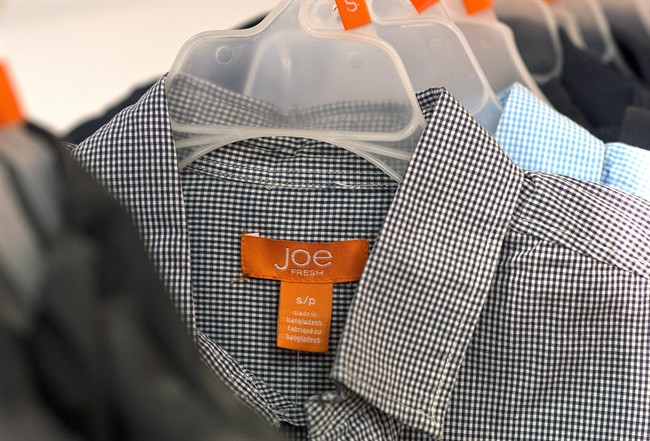VANCOUVER – Workers’ rights groups are calling for changes to the way international clothing companies do business in developing countries, particularly in Bangladesh following the deadly collapse of a garment manufacturing company.

Canadian company Loblaw, whose Joe Fresh line of clothing was manufactured in the illegally and poorly constructed Rana Plaza complex, in Dhaka, has reacted to the collapse by saying it will reevaluate the way it audits the facilities it contracts.
More than 430 people died as a result of the April 24 collapse and the building’s owner, Mohammed Sohel Rana, has been arrested.
Workers complained of seeing cracks in the structure prior to the collapse, but where ordered to work nonetheless. About 2,000 people were inside the complex when it crumbled.
It’s not exactly a revelation that companies outsource their manufacturing to countries where they can be made for a small fraction of what it would cost domestically, and Bangladesh has made a thriving industry out of fabricating products for clothing and footwear companies.
Labour advocates want garment retailers to have responsible and ethical sourcing.
But, ensuring certain ethical and workplace standards drives up costs and that’s something that could send companies looking for yet a cheaper option. Other countries, such as Cambodia, are emerging as a major destination for the garment business and could prove attractive to cost-cutting clothiers.
Atiqul Islam, president of the Bangladesh Garment Manufacturers and Exporters Association (BGMEA), explained the country is dependent on the industry, in many ways, and it would be set back decades if it were to lose it.
While he wants to see more stakeholder involvement in ensuring good working conditions, foreign companies are already seeing their profit margins drop, with rising labour costs, he said in a phone interview from Dhaka.
Islam explained wages have gone up, but the market price of the clothing has actually dropped about three to five per cent.
Garment manufacturing accounts for a 10 to 12 per cent direct contribution to the country’s GDP – which works out to around $20 billion a year.
Losing that industry would set Bangladesh back decades, Islam said.
He said 80 per cent of Bangladesh’s garment industry comes from overseas companies — the only industry in the country to have such a high foreign investment.
It also employs more than four million people, in a country where 40 per cent of the population is under employed and, according to the C.I.A world fact book, are only working a few hours a week for low wages.
Read: In the wake of Bangladesh factory collapse, labour activists hope for a consumer shift
If companies were to pick up and move on to the next cheapest option, it would have a devastating effect to the workforce.
“From this garment industry our bank, our insurance, our hotels, Bangladesh airlines — they all depend on the garment industry,” Islam explained. “Indirectly, there are 16 million workers indirectly involved.”
He said it’s been a positive force for women in the country, who are not given the same opportunities as men and often aren’t trained labourers.
“They don’t need any kind of training. They can directly join and do their work the next day,” he said.
Without any other skills, an industry shift to a competing country would leave many of them with no options.
The founder of BRAC (formerly the Bangladesh Rural Advancement Committee), think calls from consumers to stop doing business with Bangladesh “would not be the compassionate course of action.”
“I know that boycotting brands that do business in Bangladesh might only further impoverish those who most need to put food on their tables, since the foreign brands would simply take their manufacturing contracts to other countries,” Faizal Hasan Abed wrote in a New York Times op-ed piece this week.
Chris Joshnick, Oxfam America’s Director of Private Sector Engagement, said he doesn’t think there will be a major call for clothing companies to abandon Bangladesh.
But, he said Western companies under pressure from their consumers may have to begin “digging deeper and face more squarely” the problems in dealing with an industry that’s not well-governed, as is the case in Bangladesh.
Islam explained buyers coming into Bangladesh deal directly with the apparel manufacturer, at the time of costing, and there is no government oversight into whether a foreign investor is buying into a contract with an illegitimate or unethical operation.
For the latest updates on the Bangladesh factory collapse, click here




Comments